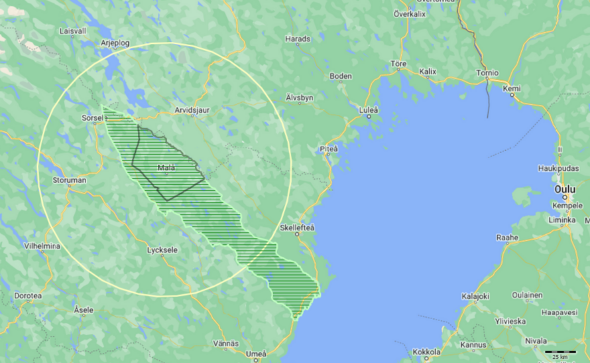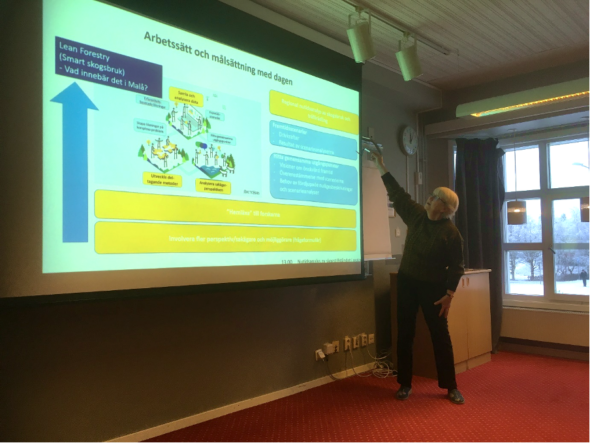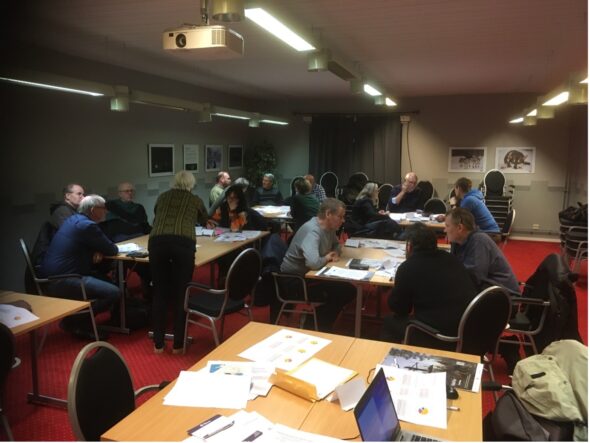At a recent workshop with local stakeholders in Malå, Sweden (click here to read more about Malå hub #6), organised by our partner Swedish University of Agricultural Sciences (SLU), the issue was raised of how and for which purpose the forest should be managed and used. The workshop was an ideal occasion for our partners to gather information and work together with various local stakeholders and communities representatives linked to forestry sector to,
- collect feedback on forestry land issues
- build future scenarios
- explore alternative solutions
- also to further test collaborative data collection methods such as PPGIS
Based on a new analysis of the state of the forest in the region, and using four conceivable future scenarios regarding felling and future forest state, the needs for adaptation, measures and decisions to reach a desired future in the area, were discussed.

As a result of these collective discussions, some important early steps towards the identification of a common ground and the visioning of future forest in Malå were made. Thanks to the participants sharing their views and experiences, it also meant that ArcticHubs researchers are now in a better position to progress through the sequence of research tools being adapted within the project.
The next phase to develop more locally based scenarios will be presented at a forthcoming workshop titled ‘Forests of the future – How do we get there?’.

The next event will take place again in Malå on 25th May 2023 and it will addresses the urgent question of what the forests should be used for?
The demands and expectations of the forest and its use are many and of different kinds. At the same time, awareness is also increasing that the forest cannot meet all the demands, and hence sustainable forestry requires wise choices. These choices do not only depend on global markets and international agreements (politics) but also need to be rooted in a local reality.
how do we achieve smart and resource-efficient forestry (lean forestry) in Malå and its surroundings? That is the theme and task of this next workshop activity in May 2023.
In addition, new cutting-edge technology for gentle and precise forestry practices will be discussed in May. This aspect is based on the ArcticHubs research that is ongoing at Luleå University of Technology, where light, collaborative, unmanned and self-learning forest machines are now being developed and tested in different settings.

It is hoped that this too will contribute to further steps being taken towards a characterization of ‘lean forestry’ from a local real-life environment perspective.
All pictures are from Swedish University of Agricultural Sciences (SLU)
